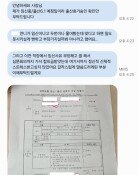Stop N. Korean slave laborers overseas from sending money to Pyongyang
Stop N. Korean slave laborers overseas from sending money to Pyongyang
Posted January. 15, 2016 08:42,
Updated January. 19, 2016 13:59
A North Korean man in his 40s who was working in Vladivostok, Russia died after setting himself on fire. A YouTube video shows firefighters spraying foam onto a charred man who was not moving at all lying face down.
In his suicide note, he wrote, "I am tired of my hard life. I do not blame anyone." The brief words that he left at the last moment of his life are saddening. How hard his life must have been to leave the word "tired" on his last message. His words of not blaming anyone indicate his concern that his family in North Korea could face disadvantages because of what he did.
North Korea sends laborers to many regions overseas since dispatching the first group of loggers to Russia in 1967, to Africa in the 1970s, to the Middle East from 1991 and to Southeast Asia, Mongolia and Europe in recent years. An estimated 50,000 North Korean workers are working in some 17 countries around the world.
Russia has the lion`s share about 20,000 North Korean laborers. Among them, about 2,000 construction workers are in Vladivostok. A North Korean refugee who attended a human rights forum in Brussels, Belgium last September said that the workers were forced to work 16 hours a day and lived in quarters that had no heating, air conditioning or disinfection. He added that they often worked for over 18 hours if they failed to fulfill their daily assignments.
They work 12 to 16 hours a day under surveillance by the North`s State Security Department and are given no more than a day or two off a month. Most of their salaries are sent to the North as "loyalty money" while much of the rest is also taken by middle managers. If one earns 1,000 U.S. dollars in monthly salary, he will be left with just 120 to 150 dollars in his hand. They are living in slavery rather than as overseas workers.
The money they transfer to the North Korean regime`s political funds accounts amount to 500 million to 600 million dollars a year. The amount has increased since Kim Jong Un came in power. In a contributed article to the New York Times after the North`s fourth nuclear test, Victor Cha, a professor at Georgetown University, wrote that slave labor bankrolls the nuclear weapons program. He urged all countries, including China and Russia, to stop accepting North Korean laborers.
The international community`s proposal for sanctions on the North should include the issue of North Korean laborers working overseas who bankroll Pyongyang`s nuclear development. If truths about their slave labor are brought to the International Labor Organization and the International Criminal Court to have the laborers be deported back to the North, it could catch the two hares of raising North Korean human rights issues and cutting a funding source for the nuclear development.
Headline News
- N. Korea launches cyberattacks on S. Korea's defense companies
- Major university hospital professors consider a day off each week
- Italy suffers from fiscal deficits from ‘Super Bonus’ scheme
- Inter Milan secures 20th Serie A title, surpassing AC Milan
- Ruling and opposition prioritize spending amid tax revenue shortfalls







